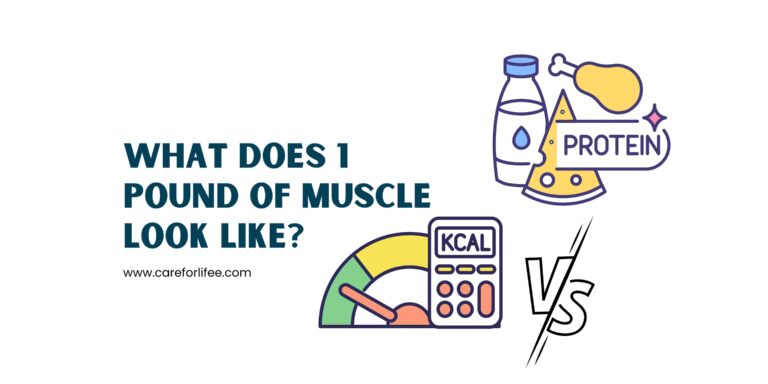Can You Exercise in the Morning Without Eating?
Exercising in the morning is a great way to start your day with a burst of energy and positivity. However, the question arises, can you exercise in the morning without eating? Some people prefer to work out on an empty stomach, while others need to fuel up before hitting the gym or going for a run.
This topic has sparked debate among fitness enthusiasts, and we’re here to explore the pros and cons of exercising in the morning without eating. In this blog, we’ll discuss the benefits of exercising on an empty stomach, the drawbacks, and strategies to follow if you choose to work out without eating.
So, if you’re curious about whether you can exercise in the morning without eating, keep reading!
Benefits of Exercising in the Morning on an Empty Stomach
Exercising in the morning without eating can have several advantages, including:
Increased Fat Burn:
One of the significant benefits of exercising on an empty stomach is increased fat burn. When you exercise without eating, your body uses stored fat as the primary fuel source instead of glucose. This process, known as fasted cardio, can help burn fat more efficiently and aid in weight loss.
Improved Insulin Sensitivity:
Fasted exercise can also improve insulin sensitivity, which is the body’s ability to regulate blood sugar levels. When insulin sensitivity is high, the body uses glucose more effectively, and this can help prevent conditions like type 2 diabetes.
Mental Clarity:
Exercising on an empty stomach can also help improve mental clarity. When you exercise in the morning, you increase blood flow and oxygen to the brain, which can help you stay focused and alert throughout the day.
Convenient Time:
Working out in the morning without eating can be a convenient time to fit exercise into your schedule. You can get your workout done before the demands of the day take over, and you may be less likely to skip your workout if you’ve already completed it.
Better Sleep:
Finally, exercising in the morning can help improve your sleep quality. When you exercise early in the day, you give your body time to wind down in the evening, which can lead to better sleep quality. Additionally, research has shown that morning exercise can help reset your body clock and improve sleep-wake cycles.
Drawbacks of Exercising in the Morning on an Empty Stomach
Exercising in the morning on an empty stomach has its benefits, but there are also some potential drawbacks to consider before adopting this practice. Let’s take a look at some of these drawbacks:
Risk of Hypoglycemia
Exercising without eating can cause a drop in blood sugar levels, leading to hypoglycemia. This condition can cause symptoms such as dizziness, weakness, nausea, and even loss of consciousness. If you have a history of low blood sugar or diabetes, it’s essential to consult with a healthcare provider before working out on an empty stomach.
Reduced Performance
Exercising on an empty stomach can also lead to reduced performance during your workout. You may feel weaker, tired, or unable to complete your routine, which can make your workout less effective.
Difficulty in Building Muscle Mass
Building muscle mass requires proper nutrition, including protein, carbohydrates, and healthy fats. Exercising on an empty stomach can limit the nutrients available to your body, making it more challenging to build muscle.
Hunger Pangs
Exercising on an empty stomach can also cause hunger pangs, which can be distracting and uncomfortable during your workout. This can lead to a less effective workout, reducing the benefits you receive from exercising.
Risk of Overeating Later
Exercising on an empty stomach can cause you to feel hungrier later in the day, leading to overeating and consuming more calories than your body needs. This can result in weight gain and undo the benefits of your morning workout.
To overcome these drawbacks, there are strategies you can follow, such as starting slow, monitoring blood sugar levels, and refueling after your workout. We’ll discuss these strategies in more detail in the next section.
Strategies for Exercising in the Morning on an Empty Stomach
If you’ve decided to exercise in the morning without eating, it’s crucial to follow some strategies to ensure you’re getting the most out of your workout while staying healthy. Here are some useful tips to consider:
Hydration
Staying hydrated is essential, especially if you’re exercising on an empty stomach. It helps regulate body temperature, lubricate joints, and prevent dehydration. Before your workout, drink at least 8-16 ounces of water to hydrate your body. During the workout, sip water to replace lost fluids.
Start Slowly
Exercising on an empty stomach can be challenging, especially if you’re not used to it. To avoid burnout, start slowly and gradually increase the intensity of your workout over time. Begin with light activities like stretching, yoga, or walking before moving on to more vigorous exercises like running or weightlifting.
Monitor Your Blood Sugar Levels
If you have diabetes or any other medical condition, it’s essential to monitor your blood sugar levels before, during, and after exercising. Exercising on an empty stomach can cause your blood sugar levels to drop, leading to hypoglycemia. Always carry a snack with you to help raise your blood sugar levels if needed.
Eat a Balanced Dinner the Night Before
What you eat the night before can significantly affect your morning workout. Eating a balanced dinner rich in protein, complex carbohydrates, and healthy fats can provide you with the energy you need to exercise the next morning. Avoid eating foods high in fat or sugar, as they can slow down digestion and cause discomfort during the workout.
Refuel After Your Workout
After your morning workout, it’s crucial to refuel your body to restore the glycogen levels in your muscles and prevent muscle breakdown. Eating a healthy breakfast rich in protein, complex carbohydrates, and healthy fats can help you recover and get ready for the day ahead.
In conclusion, exercising in the morning without eating can be a great way to jumpstart your day and maintain a healthy lifestyle. However, it’s crucial to follow certain strategies to ensure that you stay healthy and get the most out of your workout.
By staying hydrated, starting slowly, monitoring your blood sugar levels, eating a balanced dinner the night before, and refueling after your workout, you can have a successful morning workout without compromising your health. Remember that everyone’s body is different, so it’s essential to listen to your body and adjust your routine accordingly.
By incorporating these strategies into your morning workout routine, you can optimize your performance and enjoy the many benefits of exercising on an empty stomach.







